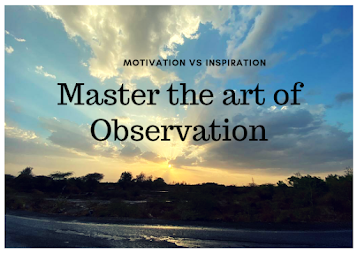In our fast-paced world, the pressure to act quickly and consistently can overwhelm the best of us. However, there’s profound wisdom in the art of observation—a practice that encourages pausing to absorb and understand before diving into action. This article explores why sometimes it’s best to sit back, observe, and how doing so can enhance your decision-making, creativity, and interpersonal relationships.
The Power of Pausing
The concept of pausing is often undervalued in a society that prizes action and quick responses. Yet, the power of pausing to observe before reacting offers numerous benefits. When you take a moment to step back, you gain the opportunity to collect your thoughts, assess situations more thoroughly, and approach decisions with a clearer mind. This intentional pause can prevent rash decisions and promote a more thoughtful approach to daily challenges.
Enhanced Decision-Making
Observation allows you to gather more information and see the bigger picture. By observing, you can identify patterns and details that might otherwise go unnoticed. This can be particularly valuable in complex decision-making scenarios where the stakes are high. For example, business leaders often use observational skills to assess market trends and consumer behaviors before making strategic decisions. This approach ensures that decisions are not just reactive but are based on a comprehensive understanding of the dynamics at play. To explore more about the influence of observation on professional settings, visit importantcool .com .
Improving Creativity
The art of observation is not only beneficial for decision-making but also enhances creativity. When you sit back and observe, you allow your mind to wander and explore possibilities without constraints. This mental wandering is crucial for creative thinking as it enables the formation of new connections and ideas. Artists, writers, and musicians often emphasize the importance of observing their environment to fuel their creative outputs. A deeper dive into this concept is available in the article “Learn to Sit Back and Observe: Not Everything Needs Immediate Action” on learn to sit back and observe. not everything need – tymoff
Building Better Relationships
Observation also plays a critical role in building and sustaining interpersonal relationships. By observing others’ body language, tone of voice, and expressions, you can better understand their emotions and perspectives. This understanding can lead to more empathetic interactions and effective communication. In personal and professional relationships, taking the time to observe before responding can prevent misunderstandings and strengthen connections.
Mindfulness and Observation
Mindfulness, a practice rooted in being present and fully engaged with the moment, complements the art of observation. By practicing mindfulness, you enhance your ability to observe without judgment, which is essential for gaining true insight into your surroundings and inner self. This mindful observation can lead to a more balanced and peaceful state of mind, helping you manage stress and anxiety more effectively.
How to Cultivate Observation Skills
Developing strong observational skills can benefit nearly every aspect of your life. Here are a few tips to enhance your ability to observe:
- Take Regular Pauses: Integrate brief pauses into your daily routine. Use this time to reflect on your environment and the ongoing activities around you.
- Practice Active Listening: When conversing with others, focus fully on listening rather than planning your next response.
- Keep a Journal: Regularly write down your observations. This can help you process information and notice patterns over time.
- Engage Your Senses: Try to use all your senses when observing. This can deepen your experiences and provide a richer understanding of your context.
- Slow Down: Reduce the pace of your activities. Slower movements encourage more detailed observation.
Conclusion
The art of observation is a powerful tool that fosters better decision-making, creativity, and interpersonal relationships. By learning to sit back and observe, you can gain insights that are invisible to the hurried eye. Whether in personal life or professional settings, taking the time to observe before acting can lead to more effective and satisfying outcomes. Embrace the pause, and discover the profound benefits of watching and listening attentively.
Also Read: Public Wifi Access
